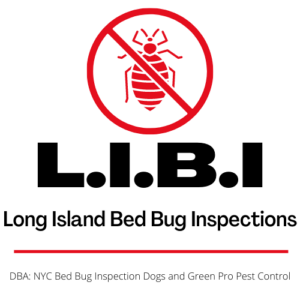The last several decades has seen a marked resurgence in bed bug infestations, not just in the United States but around the world. This has resulted in a renewed interest in the study of these pests, in the hopes that understanding bed bugs better will allow us to better prevent and eliminate infestations in both residential and commercial environments.
Recent research into bed bug behavior suggests that these vampiric pests may be more attracted to dirty clothes than they are fresh clean clothes. That may not seem like a life-changing bit of information, but it may lead to greater discoveries down the road.
Bed Bugs and Dirty Clothes
The research study was conducted at Sheffield University in the UK, and like all good research it began with a simple question – “How do bed bugs get onto airplanes?”. For William Hentley, head of the research team, the most obvious answer was ‘hitchhiking”. “That,” said Hentley, “then led me too this question of whether they’re attracted to our clothes and the smell of humans.”
In order to determine if they were on the right track Hentley and his colleagues needed to devise a test scenario. The test itself was fairly straightforward. The researchers placed a container of bed bugs in the center of a clean room with two sacks placed at equal distances from the bags. One sack was filled with clean clothes and the other was full of dirty socks and shirts submitted by volunteers. The bed bugs were released and allowed to roam free for a solid 96 hours.
At the end of the experiment the researchers found that nearly twice as many bed bugs were attracted to the dirty laundry as to the clean laundry. These results fell in line with previous research that proved bed bugs can smell as many as 100 chemical compounds produced by the human body – many of which would naturally cling to dirty laundry.
Carbon Dioxide Triggers Feeding Cycles
The Sheffield team also looked into the effects of carbon dioxide on bed bug behavior. Humans exhale close to three gallons of carbon dioxide every day, and it’s long been thought that bed bugs are attracted to the gas. But the new research suggests the relationship between bed bugs and carbon dioxide isn’t as clear cut as we believed.
The common understanding was that bed bugs were attracted to carbon dioxide, and they found their prey by homing in on the source of the gas. So, when people are asleep and exhaling a steady stream of Co2 bed bugs have an easy time of finding a meal. Hentley’s new study suggests it’s somewhat more complicated than that.
It appears that carbon dioxide does, indeed, have a profound effect on bed bugs. It wakes up their appetite and jump starts their feeding cycle. When Co2 was introduced into the control space during the Sheffield experiments it triggered the bed bugs’ foraging behavior. But it had no impact on whether those bed bugs headed for the clean laundry or the smelly old clothes.
Protecting Yourself from Bed Bugs
If, as the Sheffield study suggests, bed bugs are attracted to the scent left behind by humans on their dirty laundry it may make it easier to reduce cross-contamination. Hotels and resorts are currently experiencing high incidences of bed bug infestations. Guests and employees of these establishments constantly run the risk of bringing stray bed bugs home with them, spreading the infestation to fresh environments.
Frequent travelers should always be on the lookout for bed bugs, and should take steps to minimize the chances of carrying an infestation back home with them. If you are staying in a hotel Hentley suggests keeping all of your dirty laundry in sealed plastic bags to reduce the chance of bed bug contamination. By isolating your dirty clothes you may be better able to avoid transferring bed bugs from an infested hotel or resort to your own home.
The Impact of the Sheffield Study
New research into the behavior of bed bugs may lead to more efficient ways to eliminate infestation in commercial and residential properties. With the resurgence of the pest across the country and around the globe studies like the one recently completed at Sheffield University will be instrumental in helping pest control experts develop new and more effective treatments for bed bugs and other pests.
Published by Scott Palatnik
If you believe you’ve brought bed bugs into your home or office, give us a call, we can help!
Now with 2 locations. On Long Island @ 516-619-6149, or in NYC @ 212-299-9186
We are Long Island Bedbug Inspections.
Your Bedbug Inspection, and Elimination solution.


